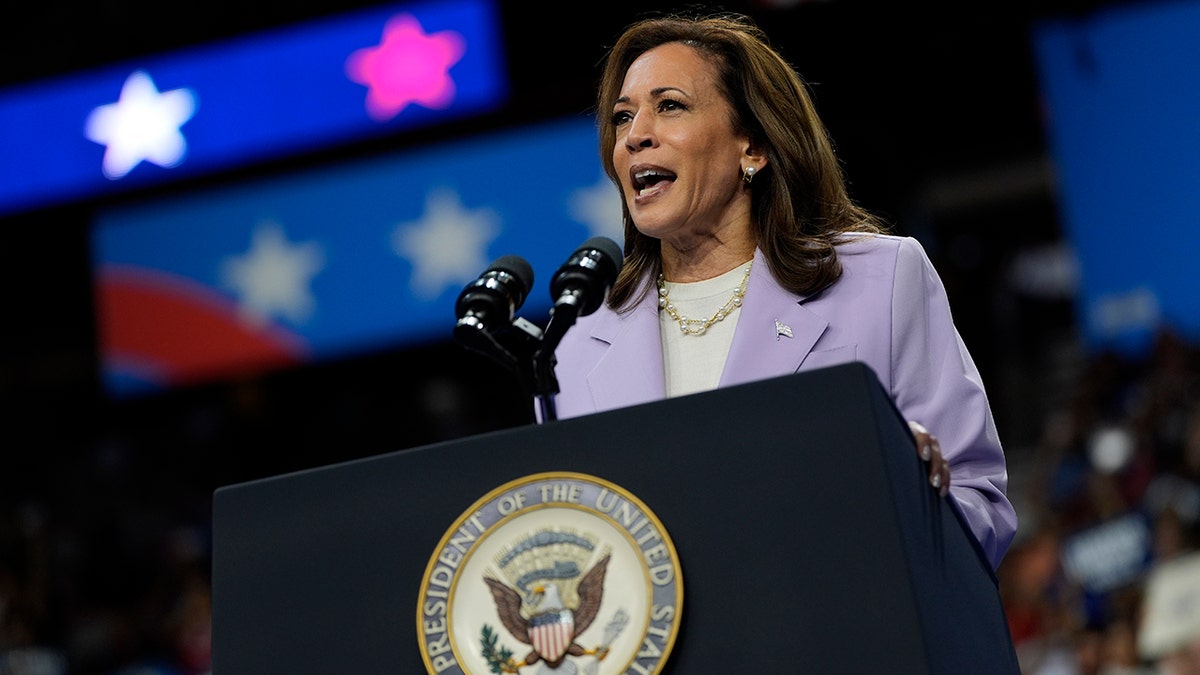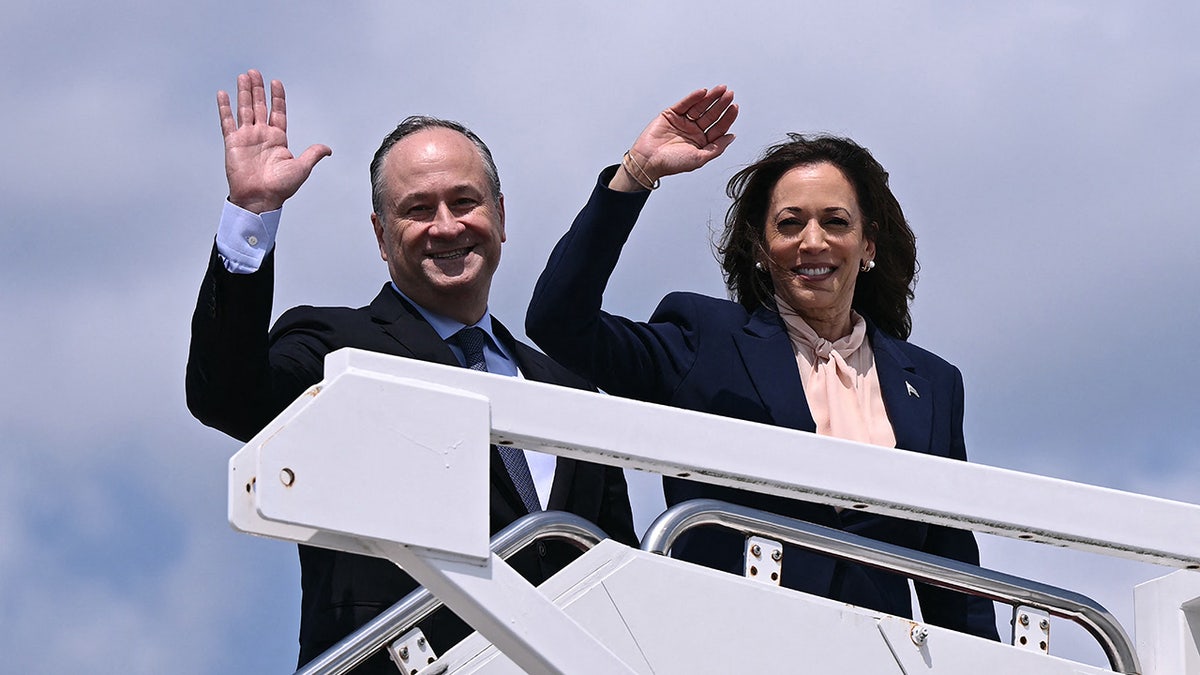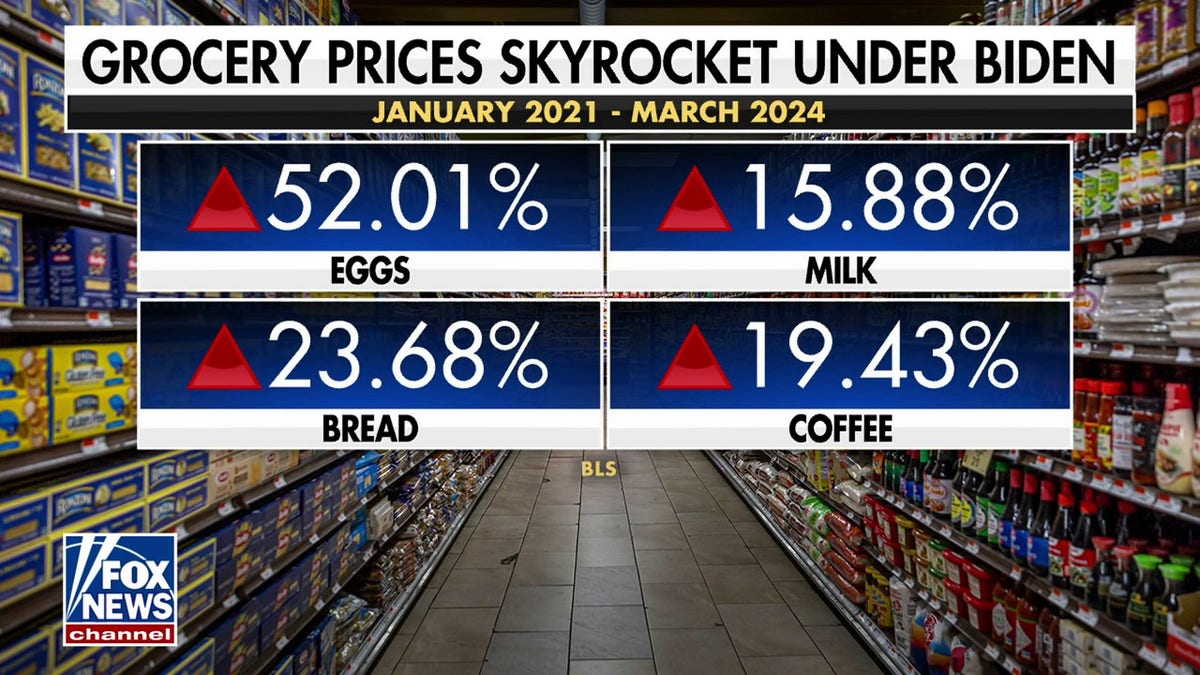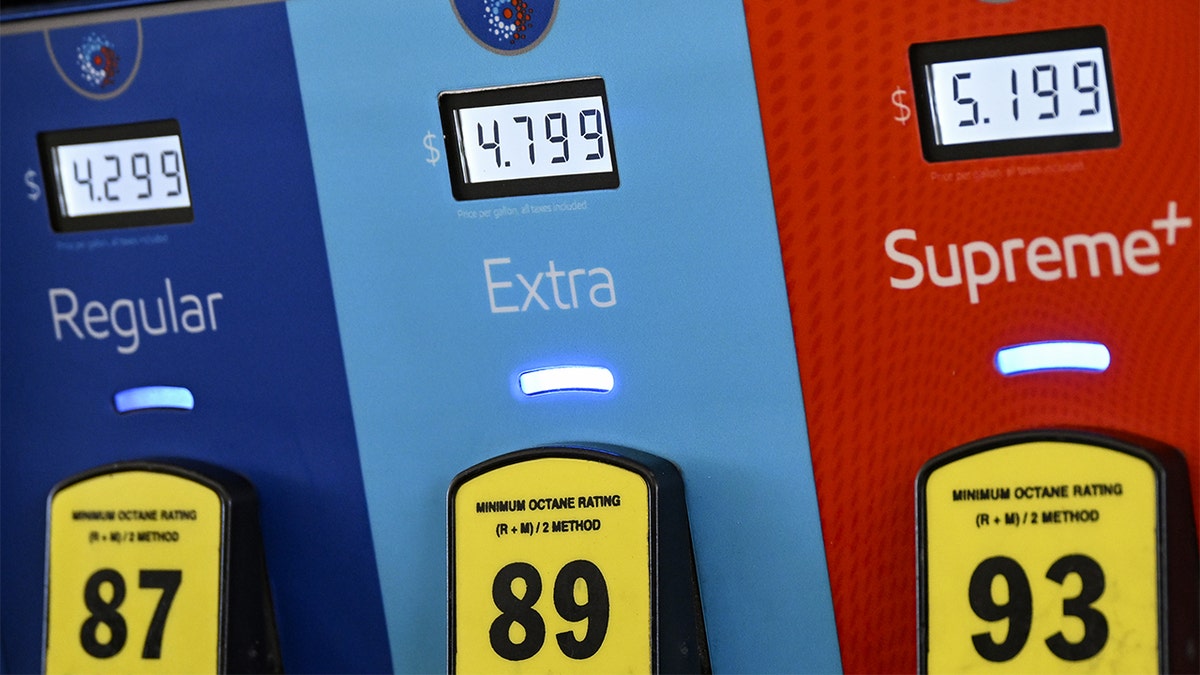A look at some of Kamala Harris' shifting policy positions
Fox News senior White House correspondent Peter Doocy reports on some policy positions Vice President Kamala Harris held in 2019 on 'Special Report.'
Vice President Kamala Harris is expected to roll out her economic plan Friday during a speech in Raleigh, North Carolina. Early indications are it will have a progressive populist thrust, including attacks on corporate "price gouging," which conservative critics say is a smokescreen to deflect from the Biden-Harris administration's handling of inflation.
Michael Tyler, the Harris-Walz campaign communications director, said on CNN's "Newsroom" Wednesday that Americans "can expect her to talk about the ways in which she wants to move this economy forward and lower costs for middle-class families," noting Harris "understands that for too many families, prices remain too high." Additionally, this week, the campaign insisted tackling inflation will be a "day one" priority.
However, conservatives are criticizing Harris for her "day one" claim about going after inflation, insisting she has had four years to do something about it.
HARRIS DOES ABOUT-FACE ON SEVERAL FAR-LEFT POLICIES, DISTANCES HERSELF FROM BIDEN
"Day one in office was 3½ years ago. What have you been doing in the meantime to tackle inflation?" E.J. Antoni said. "You've been creating it."
Similar remarks were echoed by former President Trump Wednesday during his own stop in North Carolina.
"I gave Harris and Biden an economic miracle, and they quickly turned it into an economic nightmare," the former president said.
In advance of Harris' first formal policy speech of her presidential campaign Friday, her team announced Harris plans to call for first-of-its-kind federal controls on food and grocery "price gouging" by corporations. The proposal would give authority to the Federal Trade Commission and state attorneys general to impose harsh penalties on companies for setting excessively high prices.

Vice President Kamala Harris, the Democratic presidential nominee, speaks at a campaign rally Aug. 10, in Las Vegas. (AP/Julia Nikhinson)
"There's a big difference between fair pricing in competitive markets and excessive prices unrelated to the costs of doing business," the Harris campaign said shortly after announcing the policy proposal.
Republican economists have criticized the move, calling it "Marxist" and "lunatic behavior."
They also challenged the merits of Harris' claim that food and grocery providers are artificially inflating prices.
"Actual consumer prices have been going up less than producer prices, which means that businesses, if anything, are price gouging themselves," said Richard Stern, director of the Heritage Foundation's Grover M. Hermann Center for the Federal Budget.
"If the prices are going up more than the cost of doing business, then [the consumer price index] would be going up faster than [the producer price index], and it's not."
Antoni, also of the Heritage Foundation, noted that, in the past, when politicians have tried to impose price and wage controls, it has "always ended with the same disastrous effect, which is shortages."
"We had gas lines in the 1970s, and now she's talking not about regulating the price of fuel, but regulating the price of food. So, instead of gas lines, we're going to have bread lines. This is absolutely insane, but I guess we shouldn't be surprised because, let's face it, [Harris] is a Marxist, and her policies are going to introduce the exact same effects here that Marxist policies have had elsewhere."
"Price control of groceries is a Soviet Union approach to inflation," said Paul Teller, executive director at Advancing American Freedom, a nonprofit founded by former Vice President Mike Pence. "Price controls are wrong and never work, not on groceries and not on drug prices. They are anti-innovation and anti-free market."
BIDEN INSTRUCTS MEDIA TO 'START WRITING' THAT HIS INFLATION POLICIES ARE 'WORKING'
Meanwhile, other critics of Harris' "price-gouging" proposal have questioned why she has not rolled out this proposed measure sooner. Democrats have control of the White House and, theoretically, the Senate, where Harris is the tie-breaking vote for legislation split along party lines.
Fox News Digital reached out to the Harris campaign for comment on the new "price-gouging" proposal, which is expected to be formally introduced Friday when Harris visits North Carolina, and was directed to a thread on social media that included news articles and research insisting a lack of competition and other factors in the grocery sector are giving corporations an unfair advantage over consumers.
Setting the stage for the vice president's speech, the Harris campaign on Friday morning unveiled additional economic policy proposals including a per child tax credit of up to $6,000 for families, a tax credit for people without children who work lower-income jobs of up to $1,500, and a health care tax credit providing up to $6,000 through the Affordable Care Act.
The plan also includes efforts to remove tax benefits from Wall Street investors through a bill called the Stop Predatory Investing Act, aimed at curtailing predatory practices by major investors who acquire large numbers of single-family rental homes.
The Harris-Walz economic platform also includes other measures to address housing costs as well, including down-payment assistance for first-time and first-generation home buyers. Other efforts to reduce housing costs for Americans and boost the industry overall include a call for the production of three million new housing units, as well as tax-incentives for "starter homes" and affordable housing production.
Prescription drug costs are another element of Harris's economic plan. She wants to allow Medicare to negotiate drug prices and cap the cost of insulin at $35 and out-of-pocket expenses at $2,000.
The Harris campaign has also adopted former President Trump's no-tax-on-tips policy in recent weeks, which, Tyler said, was just one part of Harris' plan, because the vice president "also understands what Donald Trump doesn't understand, that that's not enough."
CLOSE CONTEST BETWEEN TRUMP AND HARRIS IN THIS BATTLEGROUND STATE TURNED RED: POLL

Vice President Kamala Harris, the 2024 Democratic presidential candidate, and second gentleman Doug Emhoff wave as they board Air Force Two at Joint Base Andrew in Maryland Aug. 6, 2024. (Brendan Smialowski/Pool/AFP via Getty Images)
"That's why we have to increase the federal minimum wage," Tyler said, highlighting Harris' second known economic proposal so far.
During her failed 2019 presidential campaign, Harris' economic policies included a $3 trillion tax plan aimed at increasing taxes on the wealthy. Just like her current campaign, she wanted to raise the federal minimum wage, direct billions of dollars in tax credits to low-income renters, create a Bernie Sanders-style Medicare for all health care system and lower cash bail for criminals.
Everyday Americans are feeling the effects of inflation when they reach into their wallets. The Labor Department on Wednesday said the consumer price index (CPI), a broad measure of how much everyday goods like gasoline, groceries and rent cost, rose 0.2% in July from the previous month, in line with expectations.

The prices of several essential grocery items have risen significantly in recent years. (Fox & Friends First)
Prices climbed 2.9% from the same time last year. It marked the lowest level of inflation since March 2021.
Housing costs were once again the main driver of inflation last month. Rent costs rose 0.3% for the month and are up 5.1% from the same time last year.
Rising rents are concerning because higher housing costs most directly and acutely affect household budgets.
The cost of food climbed 0.2% last month and is up 2.2% from the same time last year. The food-away-from-home index rose by 0.2%, while the cost of groceries inched 0.1% higher.
FIVE CONTROVERSIES SURROUNDING VICE PRESIDENTIAL NOMINEE TIM WALZ, FROM DUI TO COVID FRAUD

The Biden administration was criticized on social media for a post bragging about lowering gas prices. (Celal Gunes/Anadolu Agency via Getty Images)
Despite these increases, Harris-Walz spokesperson Joseph Costello wrote in a campaign email Wednesday, "Inflation is at its lowest in over three years, and our economy is strong."
CLICK HERE TO GET THE FOX NEWS APP
"Donald Trump’s agenda would take us backwards, giving tax handouts to the same big corporations that are price gouging Americans, while raising prices on the middle class by $2,500 and driving our economy into a recession," Costello said.
Fox Business' Megan Henney contributed to this report.














































